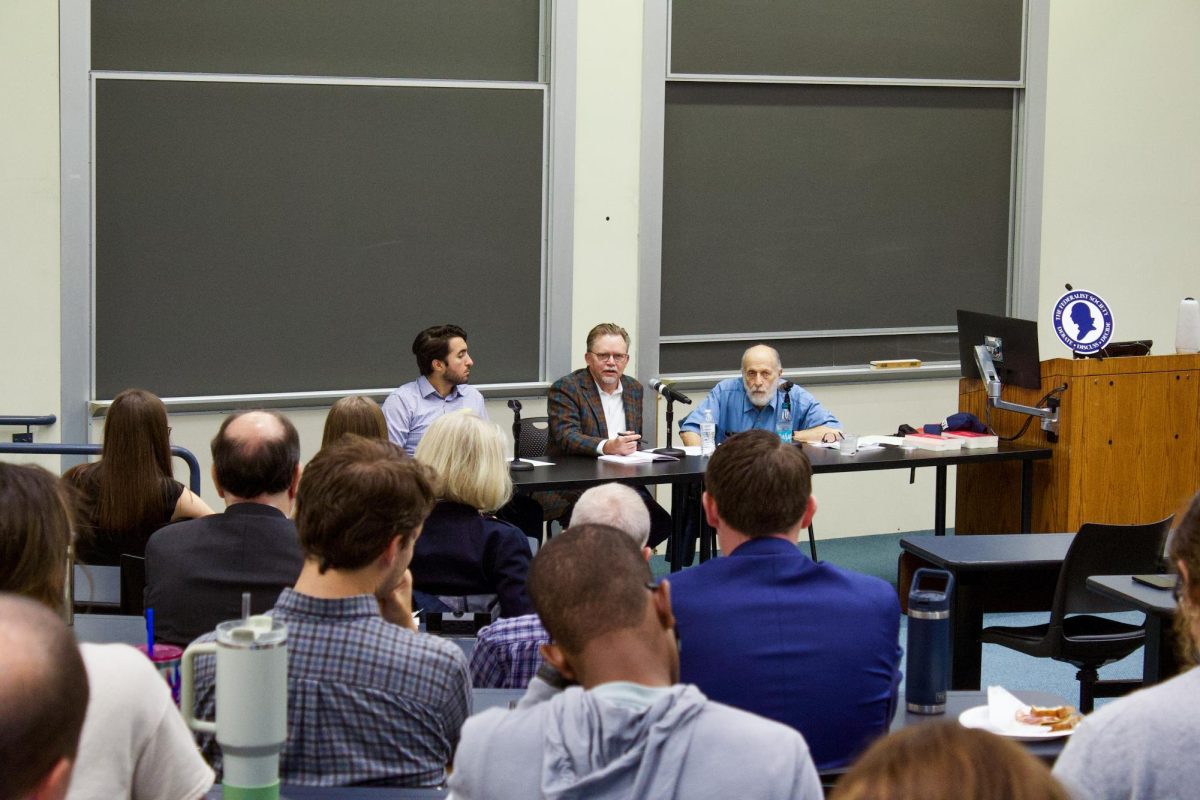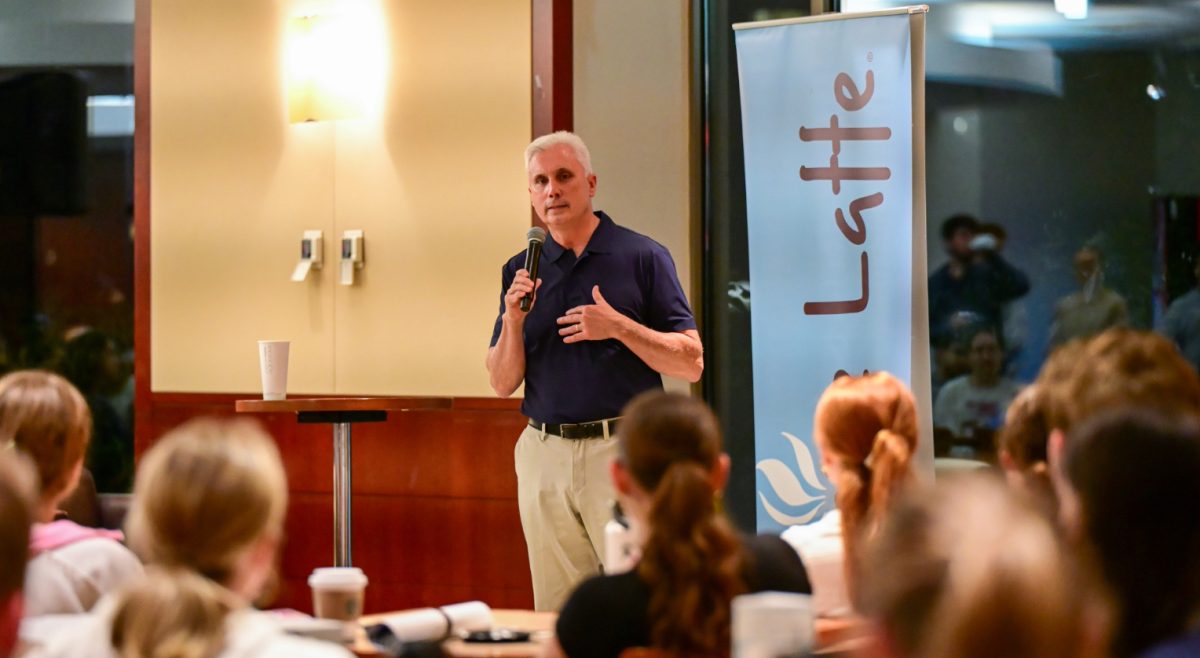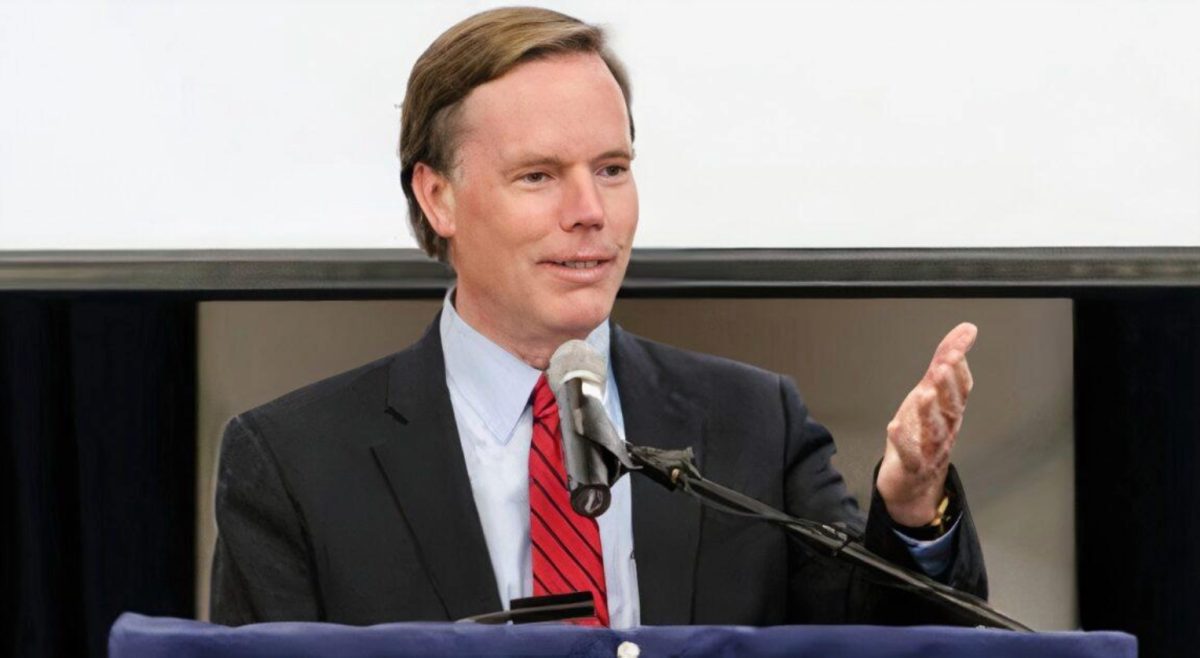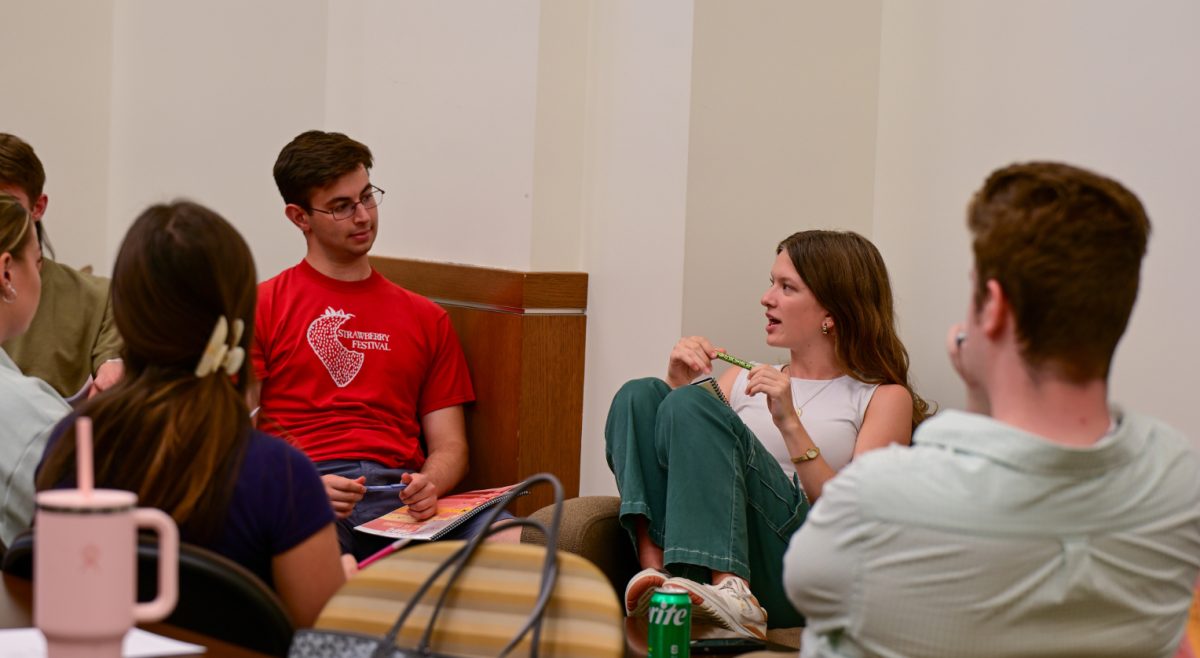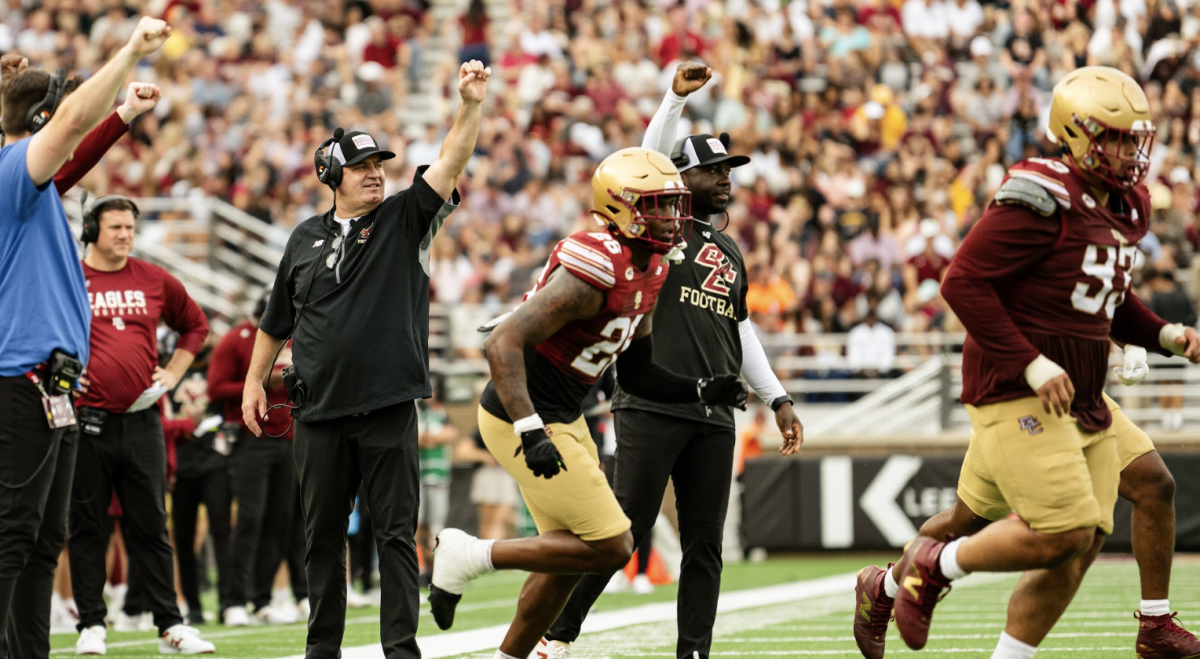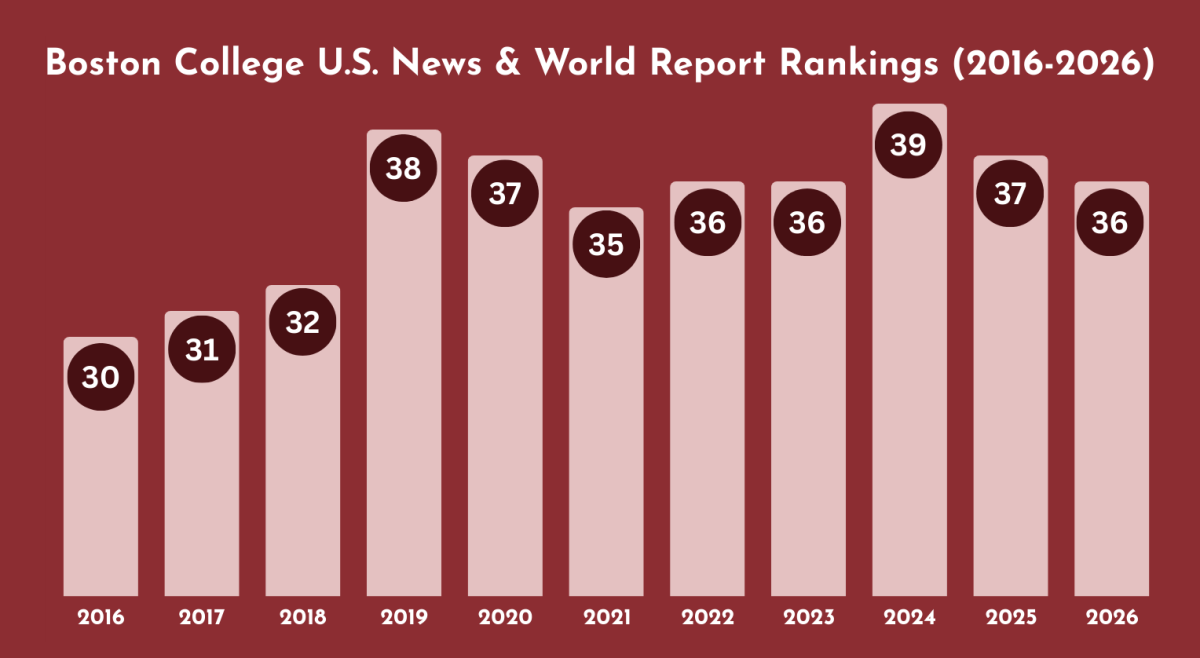Two recent changes to federal rules on granting visas could impact international students and faculty at Boston College, two administrators said Wednesday.
Earlier this month, U.S. Citizenship and Immigration Services announced it would suspend fast-track processing of H-1B visas starting April 3. The government said the suspension could be in place for up to six months.
H-1B visas are provided to foreign workers in specialty fields, which at BC usually applies to tenure-track faculty and sometimes to administrators, according to Adrienne Nussbaum, the director of the Office of International Students and Scholars.
Fast-track—also called premium-processed—H-1B applications are normally processed within a matter of weeks, Nussbaum said, but starting next week, the process could take months. The suspension affects BC’s hiring plans, potentially making it difficult for the University to bring in a foreign national hired at the last minute who it would like to start soon.
Some schools, like Harvard University, process the applications in-house, but BC uses a third-party law firm. BC processes J-1 visas, designed for shorter-term stays, internally. This year, BC had 62 international faculty and research scholars in the country on H-1B visas.
Nussbaum was not sure how many of those went through premium processing rather than the months-long process. A department looking to hire a new faculty member for fall 2017 would still have time to apply for and obtain a normal H-1B.
Vice Provost for Faculties Billy Soo said BC has been putting new hires on premium-processing applications, which he needs to sign and get in the pipeline before the new rule goes into effect next week. BC plans to hire 55 faculty this year, and eight are international faculty who have been affected by the premium-processing change.
Further changes to the visa process could also be problematic.
“If that goes away, so that either they take it away or it introduces an element of uncertainty—because if there are fewer visas, the next question is how do they determine who gets those visas—we could potentially lose those eight people,” Soo said.
In that case, it would be difficult to schedule classes for these hires due to the uncertainty surrounding their status.
Another new regulation that requires visa applications to be made in person could impact the 700 new international students BC brings in each year, Nussbaum said. Visitors could previously apply online or through a third party, but now the concern is that in-person interviews might create a backlog at U.S. consulates that could stretch into the summer. Some continuing students also have to renew their visas when they travel.
“They probably spend only four minutes with somebody on an interview, and then decide if they can come to the U.S.,” Nussbaum said. “If you’re trying to do extreme vetting in four minutes, you’re going to err on the cautious side … we are concerned about there being visa denials or things like that.”
Under U.S. immigration law, applicants are actually assumed guilty rather than innocent—the point of the interview process is for applicants to prove their “innocence,” or qualifications for entry. In the past couple of years, she said, visa wait times have typically been days or a week. That could increase as people wait to get interview slots.
“If those go from a couple of days to a week to weeks or months, there’s a possibility our students might not get here by the end of August,” she said.
Nussbaum added that Iranian faculty are concerned about leaving the country for fear that the now-defunct travel ban instituted by President Donald Trump in January could be reinstated. Soo said that when the travel ban went into effect, several department chairpersons interested in making hires from the seven countries affected called him asking how they should proceed. He didn’t wanted to tell them not to hire from those countries, but wanted them to understand the risks involved.
Other concerns over changes to regulations are, as of now, just rumors, including a fear that H-1 visas could become more restricted, or that STEM field visas could be changed.
“There’s just a very heightened anxiety and uncertainty, justifiably so, in our entire international student population, because nobody knows what’s coming next,” Nussbaum said.
Featured Image by Alex Gaynor / Heights Staff







